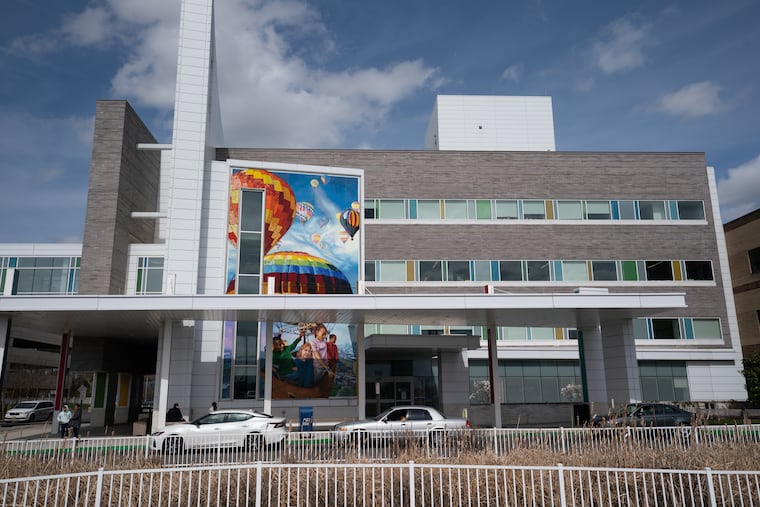Hospitals already face financial ruin. Coronavirus makes it worse. | Expert Opinion
The financial strain that closed Hahnemann loomed over many hospitals. Then the coronavirus hit.

Philadelphia is intimately familiar with the detrimental effects of hospital closures following the recent shutdown of Hahnemann University Hospital. As the COVID-19 pandemic intensifies, hospitals throughout the country, including Philadelphia’s, are staring down a financial crisis. The costs of hospital preparation, patient care, and contingency planning are beginning to add up.
Like our patients, hospitals are not immune to the effects of this crisis. The American Hospital Association, the American Medical Association, and the American Nurses Association have lobbied Congress for an aid package of $100 billion, which looks like it will go through in the national stimulus deal. It is urgently necessary. Even successful hospitals have low operating margins, and many hospitals were on the brink of financial collapse even before this pandemic hit. Rural hospitals, in particular, were entering bankruptcy with alarming frequency. With health care representing one-sixth of the U.S. GDP, losing more hospitals would have wide-ranging effects throughout the whole economy, not to mention public health.
» READ MORE: Philly should reopen Hahnemann for coronavirus — and keep it open after | Opinion
Hahnemann’s closure led to large-scale disruption in the health care delivery system and economy of Philadelphia: Over 2,000 jobs were lost, including about 40% of clinical employees. Over 500 residents and fellows were displaced, forced to complete training elsewhere. The job losses affected businesses that directly depend on, or support, the hospital ecosystem. The loss of safety-net hospitals disproportionately affects the health needs of those in society with the fewest resources. Out of 44 acute care hospitals in Pennsylvania, only 29 were profitable in 2018. Of the profitable hospitals, only the top six had net incomes greater than $50 million.
Despite the apparent density of hospitals in Philadelphia, much of the city’s population lives in areas with high needs and disparities in access. Among the 47 zip codes in Philadelphia County, 35 fall within the top two highest quintiles for need, according to the Community Needs Index, a measure of barriers to care. Losing Hahnemann severely disrupted access to care for these vulnerable populations. The possibility of additional hospital closures in Philadelphia or the surrounding rural areas poses a grave threat to our communities, both during the pandemic and in its aftermath as we refocus on subacute and chronic care needs.
Hospitals within Pennsylvania and across the country face a significant financial burden that preceded, and will outlive, their emergency COVID-19 response. Many care-related costs are not reimbursable under current payment mechanisms, legislation so far has not covered preparatory expenses, and there is significant lost revenue from canceled elective outpatient procedures and appointments. Nationally, outpatient services account for $472 billion dollars in annual net revenue, or $1.85 billion dollars per day of operation. Some regions like New York, California, and Washington State are already suspending outpatient operations to maximize capacity for COVID-19 patients. These service suspensions will save lives, but they will come at great cost to our hospitals. Pennsylvania and other states will undoubtedly experience their own surges in the coming weeks.
Based on disease modeling simulations, patient surges above the capacity of baseline ICU care could be expected to last eight to 14 weeks; loss of outpatient revenue for this long could total $130 billion. Hospitals may need up to 7.3 billion respirator masks at a cost of approximately $11.4 billion. Insufficient protection means higher staffing costs to replace infected or quarantined workers. Stand-up testing centers operating nationwide screenings will cost millions of dollars per day. Additional costs include hospital floor reconfigurations, extra ventilator procurement, mobile treatment and quarantine facilities, telehealth upgrades, laboratory expansions, enhanced sanitation procedures, and staff/community education.
» READ MORE: Coronavirus hasn’t hit rural Pennsylvania hard yet, but it’s already causing problems
This pandemic response will require coordinated, proactive, and expensive preparation by hospitals. Congressional action is key to provide hospitals with the reassurance that patient-focused planning can continue without concern for financial solvency. Hospitals will need more than $100 billion to cover lost revenue. Loans can also be provided to satisfy shorter-term payroll obligations and ensure the liquidity necessary to prepare. Additional legislative options to quickly free up extra dollars include suspending upcoming statutory Medicare and Medicaid payment cuts. State and local governments can do their part by exploring the conversion of empty dormitories, conference centers, or hotels to quarantine or care facilities for nearby hospitals.
Recent history has demonstrated the devastating effects that hospital closures can have on their surrounding communities, especially here in Philadelphia. It is incumbent on our leaders in Washington to provide the fiscal support necessary for hospitals to survive this crisis. The future cost of delays in funding, both in lives and hospitals lost, could dwarf the aid needed today.
Joseph Cavallo is a fellow in radiology at the Yale School of Medicine, and a student at the Yale School of Management. @JCavallo972 Benjamin Albright is an obstetrics and gynecology resident at the Hospital of the University of Pennsylvania. @BenAlbrightMD Howard P. Forman is a professor of public health, management, economics, and radiology at Yale. @TheHowie